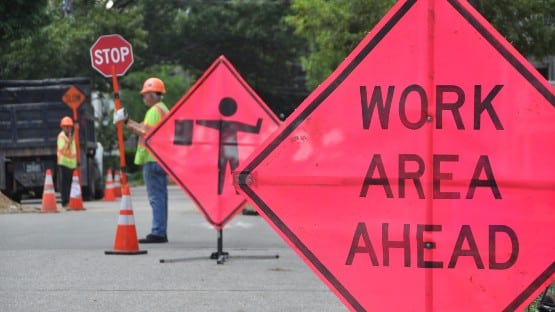Column by David Reynolds
Columns, letters: [email protected]

Budgeting is not baseball. No one waits until next year. No one wants to see how bad the numbers will become if you add 12 months.
As we are told daily, there will be no joy in Mudville this year. But what about next year? Will Mighty Casey ever get another chance to bat? He is currently listed on the unemployment rolls. He is included in that “10.2 percent” number the government’s spin masters try to hide from us. (Actually the number for Casey is 11.4 percent since he is male. The November jobless rate for women is 8.8 percent. Imagine the outcry if women amounted to almost three in four lost jobs in this recession.)
And so it goes. Too many of our unemployed friends have lost hope of returning to the diamond or wherever they used to toil to put bread on the table. Thus Mudville – and all the other villas in between – will continue to be stuck in you know what.
What’s going on? Rather, what’s not going on? We have thrown a boomerang to ourselves. We empty our pockets, the Treasury scoops up whatever it can and throws it right back at us. And our government has the gall to call it stimulating the economy – when the only part of the economy, besides health care, that is being stimulated these days is big government. Washington has hired more than 25,000 new bodies since Feb. 1 of this year – 11 days after new tenants moved into the White House.
Maybe it is not so much a mess as a money exchange without any temples being built. We have failed to stimulate the economy – only succeeded in redistributing wealth.
The federal government does something else. It produces both good and bad data. The good stuff is done by professionals at another of my former job sites, the Labor Department. The phony spin numbers are manufactured further up the avenue, at 1600 Pennsylvania. Yes, I know, every administration does it. It’s politics.
But we know what is happening here in the Valley. We don’t live in spin city, or Disneyland East, as we called it. We are simply living in a down business cycle.
Nonetheless, we need to get on the up side of the cycle. This usually requires something we call belt tightening. However, there is a limit to tightening our belts – you can only squeeze our roads, schools and health clinics, and close rest stops, so long before you strangle our essential public services.
Governments don’t seem to understand this. They keep making the wrong choices by punting away the tough ones. One party throws money at the problem; the other just gives up.
What about better budgeting? Can it help? Yes. But it all depends how you do it. Not the three ineffective ways our hired public servants usually choose in response to lower tax revenues.
First, they try the quick fix, which is neither quick nor a fix. It is band-aid budgeting.
Or, secondly, they attempt to punt away the problem. That’s when government pretends to choose when it has not really made any choice at all. It is called making budget cuts across-the-board. Bureaucrats love it because it is safe, there is nothing to defend, no one’s nose gets out of joint.
Then there is tokenism. That is when we cut out a little grizzle here and there, but the real fat is never touched by the budget ax. Higher education specializes in this form of recession budgeting. No local names please.
Now our Commonwealth and its localities are beginning to learn the truth, that past actions are not enough and our budget pains will remain. So we should take a second look at Virginia and her choices. But not now. You’ve had enough depressing news. Thanksgiving is over, why stuff yourself with more turkey. We will wait until next time to talk about whether Virginia and her localities will experience a year worse than last year, but not as bad as next.










